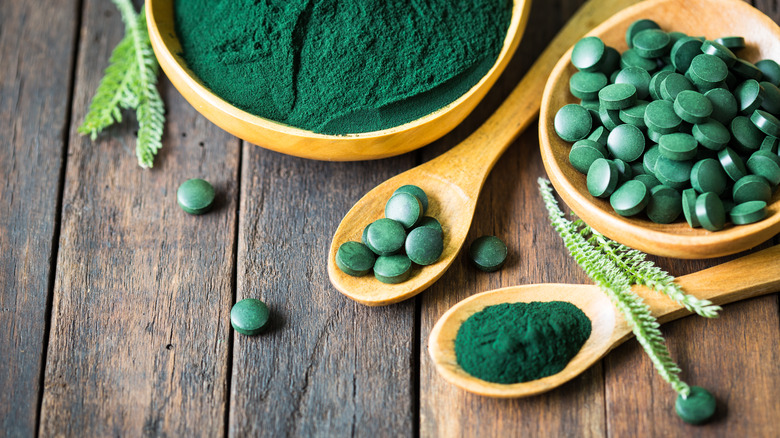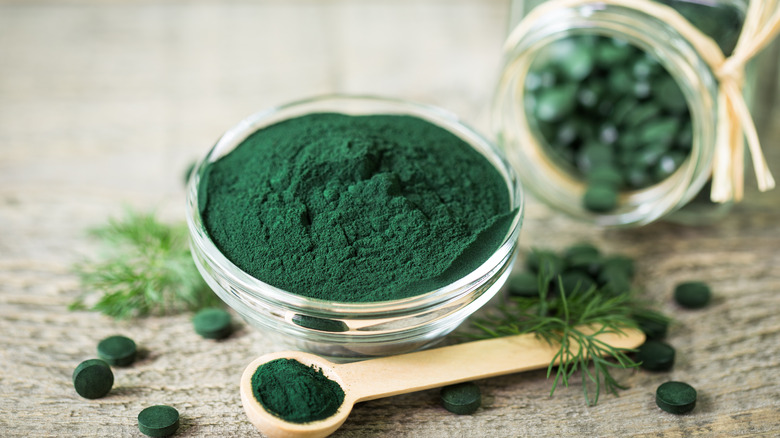The One Food That Is The One-Stop Shop For All The Nutrients Your Body Needs
"One-stop shops" are pretty hard to come by, but that doesn't keep certain foods from winning the coveted superfood title. As wellness influencers were once raving about turmeric lattes, there's now a new, bluer ingredient added to lattes and raising the superfood flag. Spirulina, a form of blue-green algae that grows in salt and fresh water, is one of the most popular supplements on the market, according to Healthline.
Spirulina is part of the cyanobacteria family and one serving offers a heaping of health benefits. For instance, integrative family physician, Madiha Saeed, says, "It supports your energy levels; it helps your cognitive function and supports development and growth overall" (via MindBodyGreen). It can also help lower LDL levels, reduce blood pressure, support muscle endurance and strength, and regulate blood sugar levels (via Healthline).
Another impressive benefit is its ability to protect against anemia and improve immunity, according to a 2011 study published in Cellular & Molecular Immunology. Though it should be noted that researchers stated that study limitations existed.
So, what's actually in spirulina? Well, a 7-gram serving of dried spirulina (1 tablespoon) contains 11% of your recommended daily amounts (RDA) for iron, 21% RDA for copper, 4 grams of protein, and vitamins B1, B2, and B3 (via Healthline). It also has anti-inflammatory, antioxidant, and anti-cancer properties.
Safety, dosage, and risk of using spirulina
If you're looking to add more nutrients to your diet, spirulina's many health benefits are promising. But how much spirulina is too much? When it comes to adding supplements to your diet, it's always best to follow the dosage labeled on the product and consult with a physician prior to starting anything new. However, Medline Plus generally suggests a safe amount is 10 grams daily for six months or 19 grams daily for up to two months. However, spirulina may not be suitable for children, breastfeeding or expecting mothers, those who are autoimmune compromised, those anticipating an upcoming surgery, and those taking diabetes medication.
Make sure to buy your spirulina from a reputable source to mitigate the risk of consuming a contaminated product, Medical News Today reports. Spirulina carries the risk of being contaminated with heavy metals like arsenic, aluminum, mercury, or lead (via Well + Good). Health experts suggest that the best way to avoid purchasing contaminated products is to buy from companies that are gluten-free, organic, and non-GMO.


